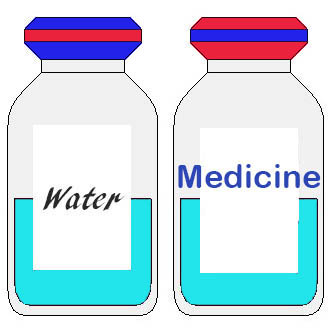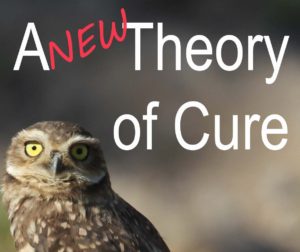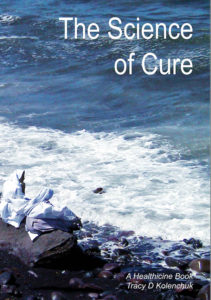 Homeopathic medicines, friends and foes explain, contain 99.9 percent water (or perhaps more). Dehydration, according to the Mayo Clinic, is when “your body doesn’t have enough water and other fluids to carry out its normal functions”. It makes sense then, that homeopathic medicines can cure dehydration. Or does it?
Homeopathic medicines, friends and foes explain, contain 99.9 percent water (or perhaps more). Dehydration, according to the Mayo Clinic, is when “your body doesn’t have enough water and other fluids to carry out its normal functions”. It makes sense then, that homeopathic medicines can cure dehydration. Or does it?
Actually… it’s much more complicated than you might think. The problem is not with homeopathic medicines, not with dehydration. The problem is with the word ‘cure’. To determine if a treatment cures an illness, we need to define cured. Cured is not defined for dehydration. It’s actually worse. For example, many medical dictionaries and references do not contain a definitions for cure, cures, nor cured:
Webster’s New World Medical Dictionary, Third Edition
The Oxford Concise Medical Dictionary, Ninth Edition, 2015.
The Bantam Medical Dictionary, Sixth Edition, 2009.
Barron’s Dictionary of Medical Terms, Sixth Edition, 2013
Medical Terminology for Dummies, Second Edition
Merck Manual of Diagnosis and Therapy, 11th Edition
Harrison’s Guide to Internal Medicine
Lange’s Current Medical Diagnosis and Treatment
Diagnostic and Statistical Manual of Mental Disorders (DSM–5)
In the above list, only Merck’s Manual of Diagnosis and Therapy, contains a definition of cure, and that definition is only in the section titled Complimentary and Alternative Medicines – actually under the section on Homeopathy. Are alternative medicines the only medicines that cure? Is that why the only medical definition of cure in the above list is about alternative medicines?
How can we possibly cure an illness, and prove that it has been cured, when cure, cures, and cured, are not defined?
Many standard dictionaries contain definitions of cure. The problem is finding consistency. Webster’s offers “a complete or permanent solution or remedy“. That’s pretty clear. The Oxford dictionary, unfortunately, is not so clear, defining cure thus: “Relieve (a person or animal) of the symptoms of a disease or condition” and “Eliminate (a disease or condition) with medical treatment. ” Is any illness cured if the symptoms go away, but the illness is still present? I don’t think so. Are illnesses only cured with ‘medical treatments’? No. Most illnesses are cured by time and healthiness.
Let’s begin with a definition of cured as the end of an illness. The current Wikipedia definition is “the end of a medical condition“, but this is a bit weak, many medical conditions, including dying, are incurable.
Dehydration is an illness. It is a disease that can be cured. Or is it? Is it a disease? Is it curable? The three main medical treatment reference texts, Merck, Lange’s, and Harrison’s offer treatments for dehydration, but NOT ONE use the word cure. We might easily conclude that officially, dehydration is incurable. Silly? Yes. The official medical references do not offer any cure for dehydration, and the references to dehydration actually point to sections with names like: “Fluid and Electrolyte Metabolism” (Merck) and “Fluid and Electrolyte Disorders” (Lange).
Maybe dehydration isn’t actually a disease? The diseases of dehydration are many and varied, with many and varied causes. We might ask if dehydration is a symptom, not an actual disease. It’s both. It’s a disease, and it’s a symptom, and it’s a sign of illness. Modern medicine does not actually distinguish well between symptoms and diseases. If we check the ICD10, the International Classification of Diseases, Version 10, dehydration has the disease code E86. It’s a disease.
What do the medical treatment references offer for dehydration? Each medical treatment reference make it clear that there are many possible causes of dehydration. Therefore, to effectively treat dehydration, you need to find the cause. The most common causes are diarrhea, vomiting, even excess sweating, caused by food poisoning, cholera and other illnesses. In some cases, when we find dehydration, we need to find the cause of the cause. Dehydration can even be caused by medicines, which are taken because of treatments recommended for other illnesses.
Dehydration might also be caused by trying to cross the desert without sufficient water supplies.
Each illness, each case of dehydration is a specific condition, with a specific cause.
The information from various treatment references, Merck, Lange’s, and Harrison’s suggest but do not directly state a further refinement of the definition of ‘cure’.
An illness is cured when the cause has been addressed.A patient’s dehydration will be cured when the cause is addressed.
Note: I have read definitions of ‘cure’ in dozens of books, and searched for definitions of ‘cure’ in hundreds more, I have, so far, only seen one single definition of cure that references ’cause’. It was not in a conventional medical text.
But, back to homeopathic medicines. We will answer our question for the simplest, but not the most common, cause of dehydration: the patient is dehydrated because they are not drinking enough water. In this case, can homeopathic medicines cure the illness?
Treatment with homeopathic medicines (consisting of mostly water), enough of it, will address the medical condition. The patient will no longer be suffering from, will no longer have the symptoms of dehydration. They will feel cured and will appear to be cured.
But is it a cure?
When the patient goes home and stops taking the medicine, assuming their behavior does not change, the symptoms, and the illness, the dehydration, will re-appear. The illness was never cured, because the cause was not addressed. The illness will not be cured until the patient starts drinking sufficient water as part of their daily activities.
Remission is when the symptoms, but not the cause, of an illness are addressed. The symptoms go into remission – we often say the illness is in remission – and when the medicine wears off, the symptoms reappear, we say the illness has returned. It was never really gone.
Cure is when the cause has been addressed. When an illness has been cured, and the cause returns, it’s a new illness.
Note:
– this illness might be cured by many things. Patient’s habits change for various reasons, and the patient might start drinking sufficient water just as easily as they stopped drinking sufficient water.
– this illness might be cured by health. The patient’s body might tell them to drink more water, and without conscious effort, the illness is cured.
– this illness might be cured by telling the patient they are not drinking enough water, if the patient believes and follows the instructions.
– if the patient is not drinking enough water because they don’t want to get up and go to the bathroom in the night, they might be cured by advice to drink more water in the morning. If they follow the advice, the illness will be cured. If they only follow the advice some of the time, it will be only partly cured, or only cured some of the time.
– if the patient is not drinking sufficient water because they are stranded in the desert, telling them to drink more water will not cure. Providing some homeopathic medicine will address the symptoms temporarily, but also will not cure. The only cure is to get them out of the desert, or at least to an oasis.
Homeopathic medicine, even though in some cases, it might be an excellent treatment for the symptoms of dehydration- will not cure it. This is not a surprise. Many medicines are specifically designed to treat symptoms, with no intention to cure. They are symptomicines, the most common of medicines.
If we sell the patient huge quantities of homeopathic medicine (mostly water) and tell them to take the medicine every day – the symptoms will disappear. Are they cured?
No. Why not?
There is a third, important definition of cured that must be considered.
The patient is cured when they no longer need the medicine.
A homeopathic medicine, any medicine, any medical treatment, can only cure if it works itself out of a job. The patient, and the illness are cured when the treatment is no longer required.
Drinking a healthy amount of water is not a medical treatment. It’s a healthy activity. Many illnesses can only be cured by healthiness. If use a homeopathic medicine, even if it consists of 99.9 percent water, it’s a medicine. If it’s a medicine, the patient is only cured when the medicine is no longer required. eg. When they can transition to drinking normal water, normally.
It should now be apparent now that no medicine can cure dehydration, for the person who is dehydrated because they are not drinking sufficient water. But dehydration is curable. It can be cured by knowledge. It can be cured by health. It just can’t be cured by medicine. Most medicines don’t cure. Most illnesses are not cured by medicines.
Final comment: In homeopathic theory, homeopathic medicines cure by the mechanism of ‘like cures like’. They work on the principle that a medicine that causes the symptoms of a disease, can be used to cure the symptoms of the disease. Water, and homeopathic medicines consisting largely of water, does not cause the symptoms of dehydration. Therefore, in theory, as well as in practice, homeopathic medicines cannot cure dehydration.
Dehydration is caused by unhealthiness, by disease and by medicines that are unhealthy. If dehydration is caused by diarrhea, then it might be cured by a medicine that cures the illness causing the diarrhea. But if the diarrhea is caused by cholera, which is caused by drinking water, no medicine can cure – the only cure is to health the water.
How many illnesses can only be cured by healthicine, not by medicines? More than we know, because we don’t count them.
to your health, tracy
Founder: Healthicine


